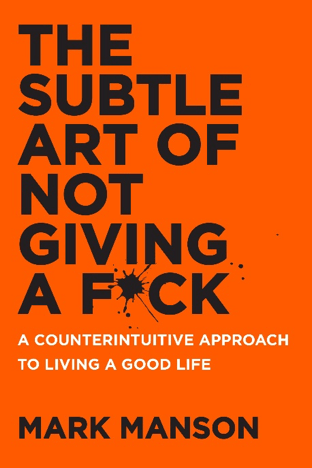
Failure is the Key to Success- How to Find your Motivation

January is well known for being the most depressing month of the year. With depression comes feelings of hopelessness, loss of interest, persistent sad or “empty” mood, and a decrease in energy. (1) Even if you don’t necessarily feel you are someone that is suffering from depression, the cold dreary weather can still take its toll. Keeping the motivation alive is something that we all struggle with from time to time. Today I want to discuss what you can do to help spring things back into action, find your motivation, and embrace failure so you can find your success in 2017.
In his book “The Subtle Art of Not Giving a F*ck: A Counter-intuitive Approach to Living a Good Life”, Mark Manson discusses how failure is the key to move forward and find success. He explains that in order to improve at anything, the magnitude of your success is based on how many times you have failed. So, if someone is better than you at something, then it is likely that that individual has simply failed at it more than you have. Take this into consideration, let’s think about a child learning how to walk. Even though the child falls down and hurts himself several times, there is never a moment when the child stops and thinks “Oh, I guess walking just isn’t for me.” The same principles can be applied to flexible dieting or even your fitness goals. Just because you do not immediately hit your numbers or see improvement does not serve as a reason to quit trying. As Manson states “we can be truly successful only at something we’re willing to fail at. If we’re unwilling to fail, then we’re unwilling to succeed.”
The “Do Something” Principle
Once you accept the fact that you will have to fail in order to succeed (and fail many times), the next step is figuring out how to stay motivated so you do not succumb to the desire to quit. Well the answer is simple:
“Don’t just sit there. Do something. The answers will follow.”
To elaborate, Mark Manson describes that action isn’t just the effect of motivation; it is also the cause. Most of us only spring into action if the motivation is already there. Furthermore, motivation is only present if the emotional inspiration is strong enough. We automatically assume that there is a chain reaction like this:
Emotional inspiration..Motivation..Desirable Action
The problem with believing the above chain reaction is that if you do not feel motivated or inspired then you automatically assume that you are simply screwed and there’s nothing you can do about it. As opposed to viewing motivation in this manner, instead view motivation as an endless loop:
Inspiration..Motivation..Action..Inspiration..Motivation..Action..so on so forth..
Ultimately, action will create further emotional inspiration and that is what will fuel your motivation for future action. Keeping this in mind, we can change our mindset to reflect motivation in the following way:
Action..Inspiration..Motivation
If you are lacking motivation in your life, plain and simple, take action and do something. This is what Mark Manson refers to as the “Do Something” Principle. If you follow this principle, failure will no longer feel important. The standard of success is instead measured by action thus any result (good or bad) can be seen as progress. By simply acting, you can become your own source of inspiration and your own source of motivation. All that is required is for you to simply do something.
So next time you feel yourself lacking motivation or you feel the desire to quit due to repeated failures, take action. Keep in mind the action does not need to be anything major. It can be simple and small. All you have to do is something. Embrace the failures that come your way and understand that it is a very necessary key to reach success.
 If you are interested in learning more, I highly recommend reading the book for yourself. Purchase here (Amazon).
If you are interested in learning more, I highly recommend reading the book for yourself. Purchase here (Amazon).
References:
- Symptoms. (n.d.). Retrieved January 25, 2017, from https://www.adaa.org/understanding-anxiety/depression/symptoms
- Manson, M. (2016). The subtle art of not giving a f*ck: a counterintuitive approach to living a good life. Sydney, New South Wales: Macmillan by Pan Macmillan.




